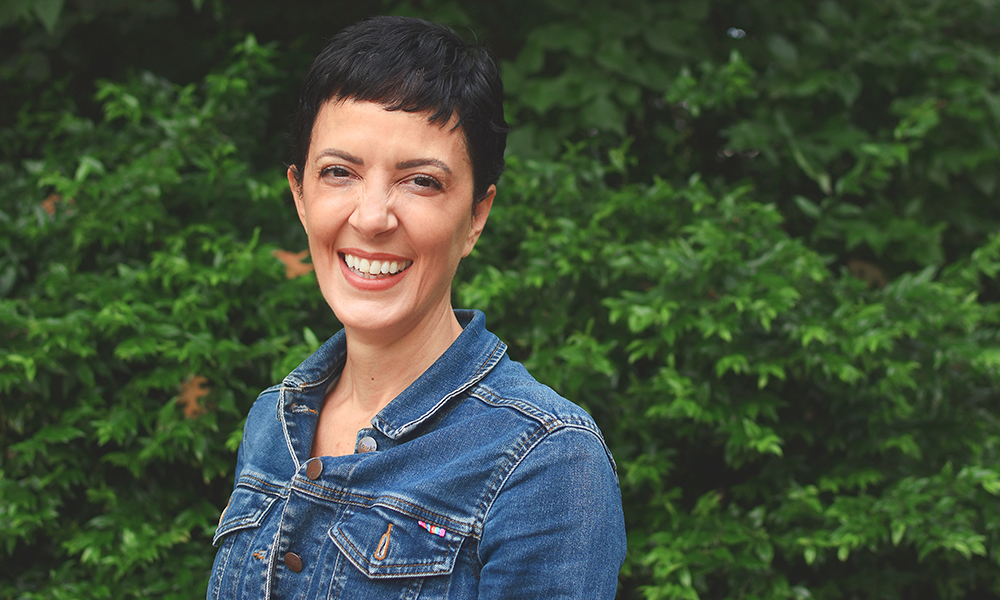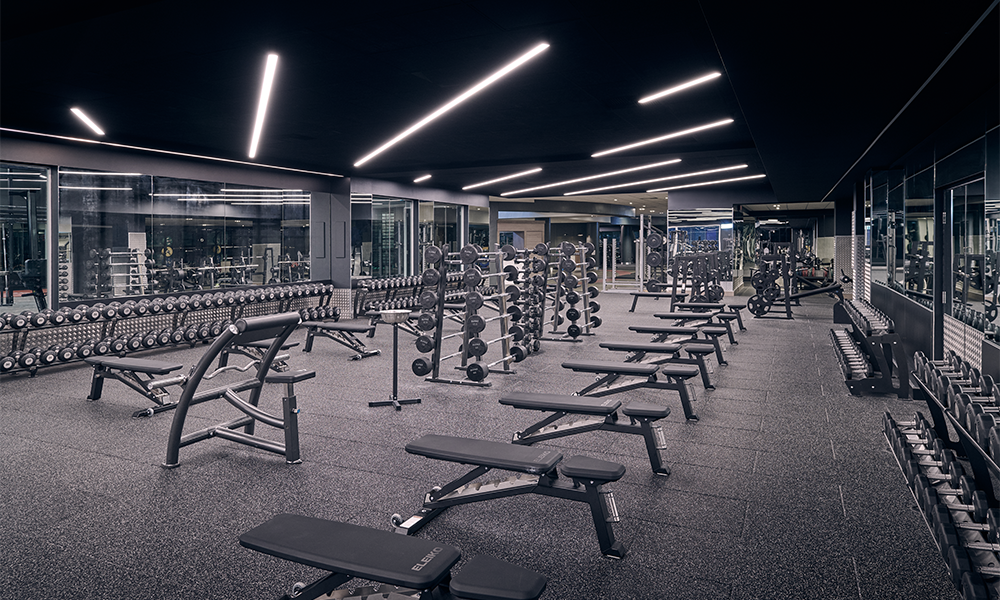Personal trainer and fitness instructor was diagnosed with breast cancer after finding a tumour

Subscribe to our Wharf Whispers newsletter here
“I cannot emphasise enough the importance of self-checking your breasts,” said Suzan Altay.
“I was lucky that I found the lump because, five months before, it hadn’t shown up on the mammogram or MRI.”
Suzan, who lives on the Isle Of Dogs and works as an elite personal trainer and Yoga and Pilates instructor at Third Space in Canary Wharf, was no stranger to having scans as part of a high risk group.
“I’d been going for check-ups twice a year since my early 20s because of fibrocystic breasts – cysts in the tissue,” she said.
“They call them lumpy breasts, so I’d go for the regular appointments and trust that process.
“It was just before I was due to go for a scan that I realised something was wrong.
“I was doing my stretching exercises one Sunday morning, when I suddenly discovered something that wasn’t there before.
“It was about the size of a pea and it wasn’t moving.
“Because I was on the priority list, I got an appointment immediately – I was referred for a biopsy, which confirmed that the lump was cancerous.
“Then they had to decide what kind of treatment I was going to have.
“The first biopsy suggested I should have a lumpectomy, where they just remove the tumour and the tissue around it.
“But a further MRI showed another mass, meaning I would need a mastectomy.
“I was given the option to have one or both breasts removed and for safety I decided to have both.
“It was supposed to be just the surgery because it was local, but during the surgery they check the lymph nodes, and found out that the cancer had spread to them too.
“Five months earlier, the scans hadn’t picked anything up and then all this.
“It was horrible, I was terrified.
“You put your trust in doctors, machines and so on – I’d not missed a single appointment in 20 years – and then all of a sudden you start questioning what was missed?
“Did I eat too many grapes? Did I not drink enough water?
“You want to make sense of it to protect yourself, but you have to accept that, with these kind of things, nobody really knows the cause.”
Because the cancer had spread to the lymph nodes, doctors recommended an aggressive approach to the disease.
“I think the hardest part of the whole treatment was the chemotherapy and losing my hair was part of that,” she said.
“It took them a month to decide what kind of drugs would be necessary.
“During the surgery I’d had breast reconstruction and I was lucky to preserve my nipples – so I’d had a month getting used to my new body when I started losing my hair from the cocktail of medication I was given.
“I had 16 sessions and then radiotherapy, which took about 11 months in total.
“It happened just after the pandemic, so while lots of people were going back to work, I didn’t for about a year.
“When you’re on chemo, the drugs make you feel sick but you also take medication to stop you throwing up – that was just a horrible feeling and you’re tired all the time.
“I was really fortunate with the radiotherapy I didn’t have a rash or anything, and I kept asking the nurses if it was really working, because I had no effects at all.
“I was even able to go back to teaching so I would go for treatment in the morning and then take classes afterwards.
“Then, on February 1 last year I was given the all clear – I had a bottle in the fridge all ready to celebrate and then I got Covid.
“It’s been more than a year now, everything seems fine and I’m good.
“I’m on daily medication and every three months I have to go for injections but my check-ups are now scaled back.
“I do get tired and sometimes a low mood, but physically and mentally I’m building up my strength again.
“The reason I wanted to tell my story was to raise awareness so women keep checking themselves and keep pushing if they find something they think isn’t right.
“Around one in three women in the UK will get cancer and finding it early is really important.
“I was lucky – when I found my lump the cancer had already spread and I don’t know what would have happened if I hadn’t found it then.
“I knew of a lady at one of the gyms I worked at who’d had cancer and was fine.
“Then she suddenly disappeared and I later discovered she had passed away – she was younger than me.
“Each day I think of her because my story could so easily have been like hers.
“Even though the treatment can take a lot out of you mentally, as well as physically, breast cancer has a high survival rate because it is relatively easy to treat.
“In my life I’ve jumped from planes and dived with sharks – I was fearless, but now I realise I can be afraid because life can be taken away just like that.”

Cancer can come for anyone.
Those who have attended one of Suzan’s classes at Third Space (myself included) will have been struck by her apparently boundless levels of energy and infectious passion for both Yoga and Pilates.
Having come to the UK in her early 20s from Cyprus, she initially studied sound engineering, before going on to work in the field.
Having long practised Yoga, she chose to train as a teacher after breaking up with a boyfriend and deciding to do something for herself – making the switch to the fitness industry and later going on to qualify as a Pilates instructor and a personal trainer.
“It’s an important time in your life when you find yourself,” she said.
“I loved sound engineering when I was doing it, but when I’m on the mat I feel I have more confidence – I know what I’m doing and it gives me pleasure.
“Once I started learning more about Yoga it gave me something – I didn’t realise what that was until I started teaching, but it was what I’d been missing in my previous career.
“It can be demanding, but I never feel tired in the classroom.
“The benefits of practising both Yoga and Pilates are really good and have helped me recover.
“The body is such an amazing machine, but it’s so important to be aware of it – everyone should keep checking themselves because things can go wrong.”
Read More: Why there’s only weeks left to see Punchdrunk’s The Burnt city
Read Wharf Life’s e-edition here
Subscribe to our Wharf Whispers newsletter here
- Jon Massey is co-founder and editorial director of Wharf Life and writes about a wide range of subjects in Canary Wharf, Docklands and east London - contact via jon.massey@wharf-life.com



